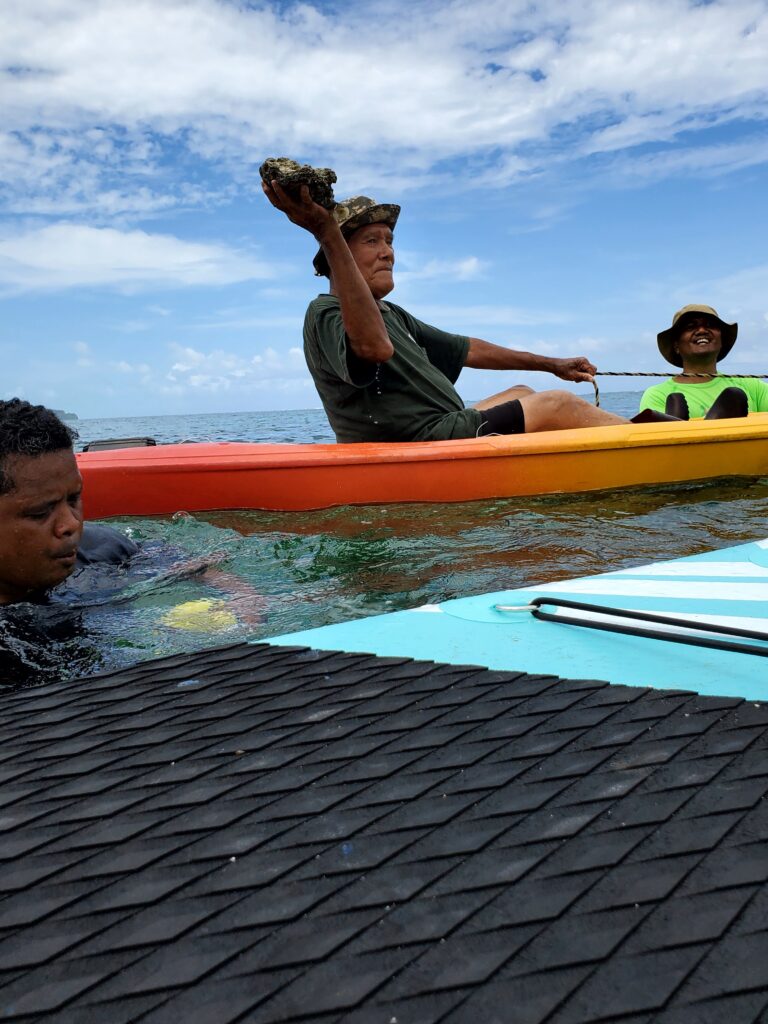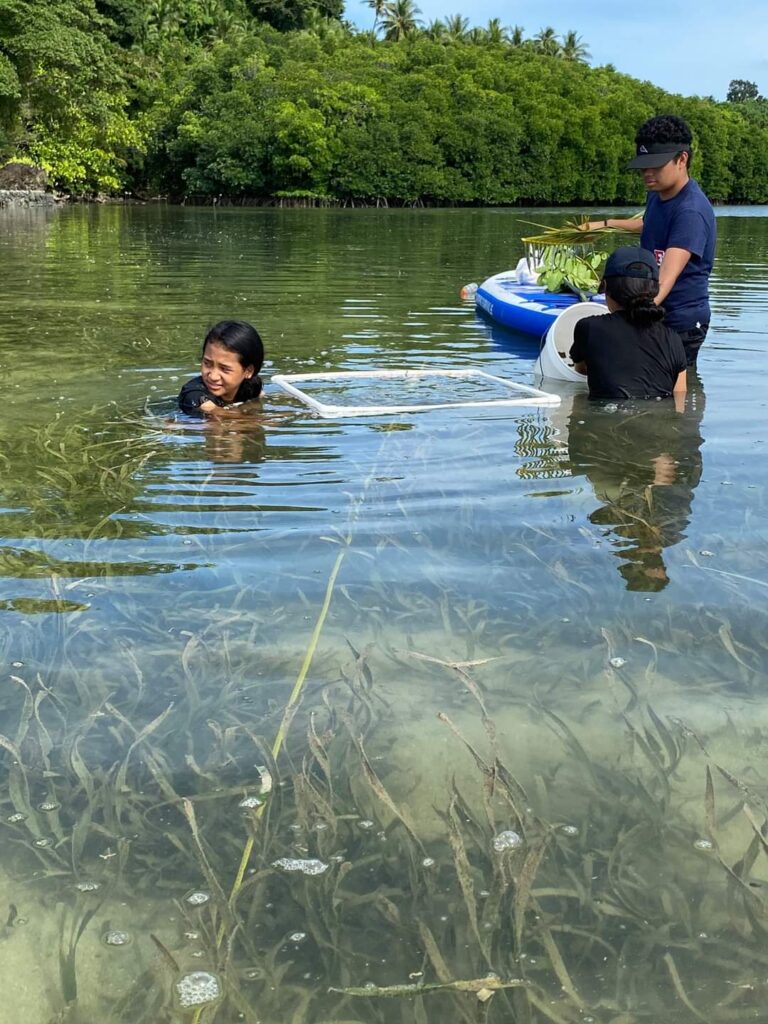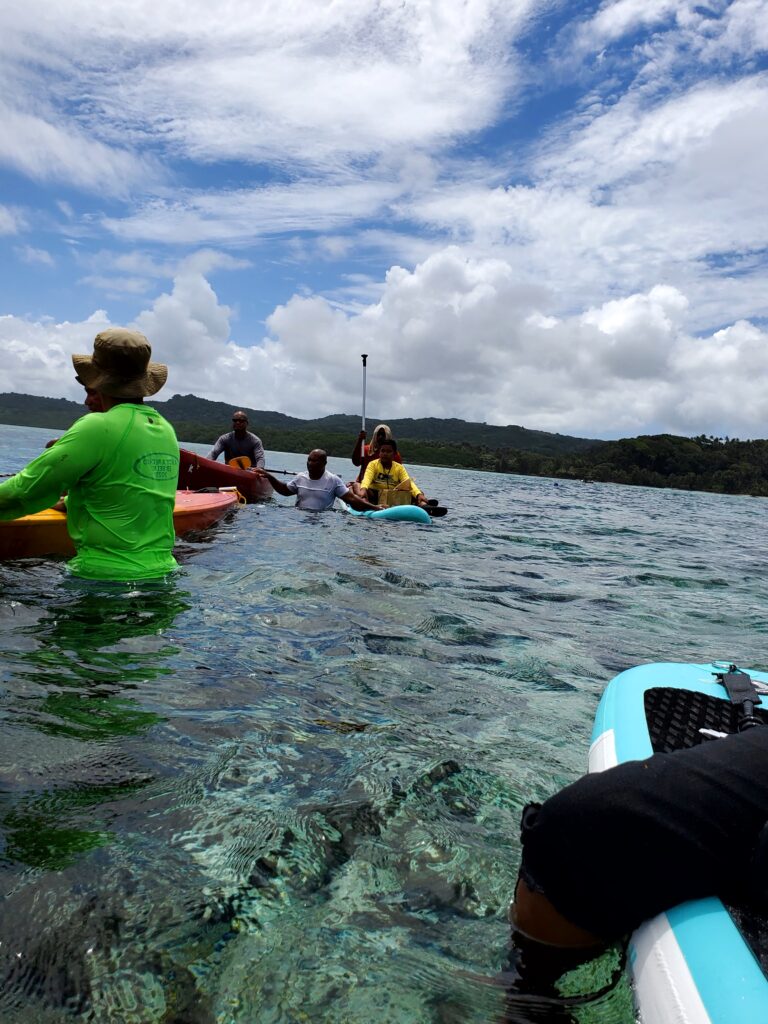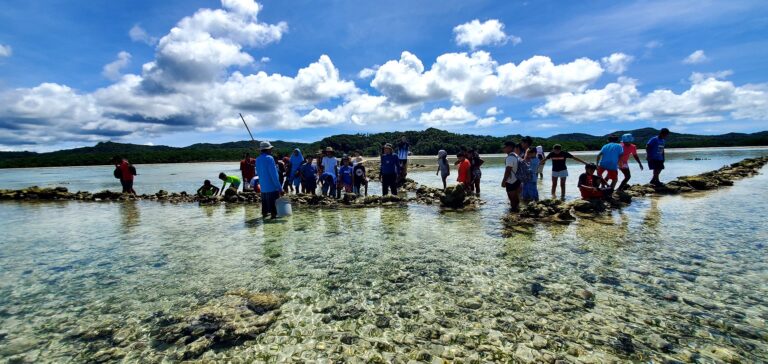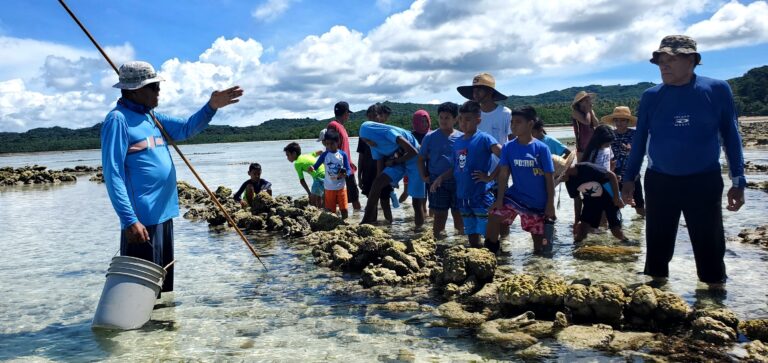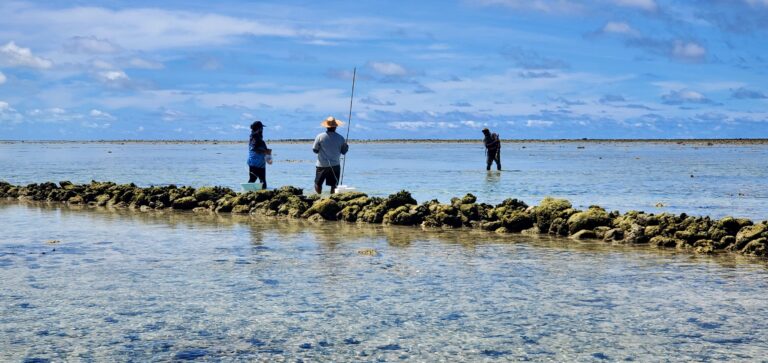Marine Program
Ebiil offers a comprehensive marine program that includes activities related to ocean conservation, restoration, protection, and learning. Ebiil’s current marine program activities include dugong community engagement and monitoring, sea cucumber restoration related to women’s fisheries, beng (fish weir) restorations in communities, and rich, hands-on educational learning experiences that touch on preserving and protecting Palau’s oceans.
Visit our Program Dashboard for sea cucumber and dugong monitoring data.
DUGONG COMMUNITY ENGAGEMENT AND MONITORING
This activity focuses on research regarding Palau’s dugongs that can inform effective species protection and the habitat they rely on. Research results are incorporated into Ebiil’s education curriculum and outreach programs that are used for informing policy design that promotes improved species protection and further recovery of the population.
Recently, Ebiil students who take part in the Decolonizing Research Methods course have produced a book called “Dugong” detailing the results of their respective dugong research findings.
In the Program Data Monitoring Dashboard, data from dugong monitoring efforts are demonstrated.
SEA CUCUMBER RESTORATION & WOMEN FISHERIES
The goal of this project is to increase climate resilience and adaptation for coastal communities by restoring locally depleted sea cucumber wild stocks and seagrass habitat health, to the extent possible; and support local livelihoods, with a particular focus on the gleaners who are primarily women who rely on the wild resource for their food security and livelihoods.
To do this, the project seeks to improve hatchery spawning and nursing of sea cucumbers of high value and significance-ecological, economic, and cultural. Further, it seeks to increase the number of women fishers’ participation in sea cucumber restocking activities on traditional fishing grounds. Lastly, restoration and women’s fisheries activities seek to increase knowledge and practice of sustainable sea cucumber fishing practices.
Sea cucumber monitoring data can be found in the Program Data Monitoring Dashboard.
BENG (FISH WEIR) RESTORATIONS
The origin of fish weir oral history and creation begins in Ngkeklau hamlet in Ngaraard on the East coast of Babeldaob. The practice allowed for the community to fish together and distribute catch to every household, an important component of the traditional food system. The weir uses rocks to create fish traps connecting the deeper water beyond the barrier reef to the shallow inner reef. It brought big fish into the shallow reef area, reducing risky travel outside of the reef, promoting sustainable selective fishery, and ensuring food security for the village.
Beng restoration efforts were focused in Ngkeklau, Ngaraard. Ebiil worked with a Ngkeklau Men’s group to restore a traditional beng (fish weir) to promote community fishery and promote healthy eating.
The results of these restoration efforts indirectly contribute to social, economic, and environmental benefits of fishery cost savings- fuel in particular, environmental health, natural resource use equity, intergenerational knowledge, and community cohesion.
